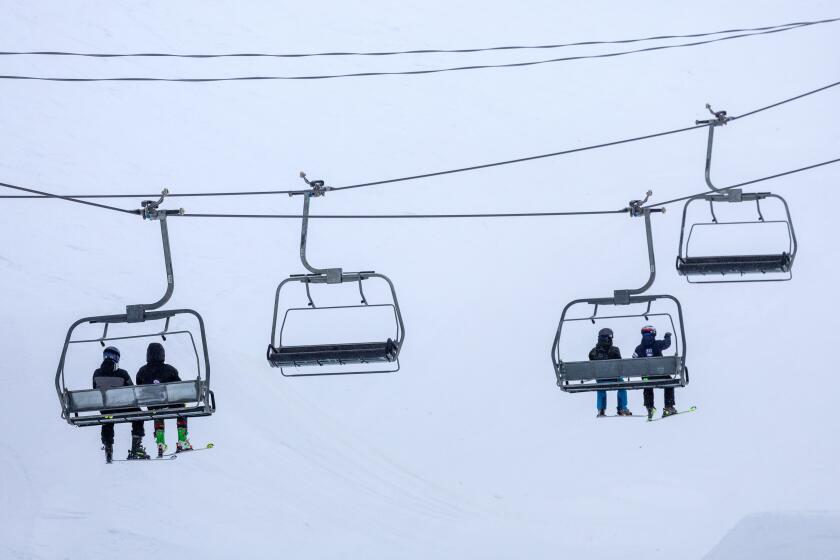THE SIMPSON LEGACY / LOS ANGELES...
- Share via
With the ink still barely dry on the Simpson jury’s verdict forms, numerous proposals to change the criminal justice system already are being hawked through the political marketplace.
Few are likely to be realized swiftly because they will require legislation, which usually is a slow process. But the one area where there could be swift change is in live television broadcasting of trials, where individual judges in most states have broad leeway to permit or prohibit such coverage.
All but three states--Indiana, Mississippi and South Dakota--now permit live television coverage of trials.
The Simpson case may swiftly change that.
In July, a Union, S.C., judge barred TV cameras from Susan Smith’s trial on charges of drowning her two young sons. He agreed with Smith’s attorney, who contended that small-town witnesses might be intimidated by the scrutiny. Then in September, a Sonoma County Superior Court judge, citing the “media saturation” of the O.J. Simpson trial, granted the request of both sides and refused to permit live or still cameras during the trial of Richard Allen Davis, accused of the 1993 kidnaping and murder of Polly Klaas.
And just three days after the Simpson verdicts, Lyle Menendez’s attorney--veteran public defender Charles J. Gessler--persuaded Los Angeles Superior Court Judge Stanley M. Weisberg to reverse field and ban live coverage of his client’s second trial on charges of shotgunning his parents to death.
Just as the attorneys in South Carolina and Sonoma County did, Gessler invoked the Simpson experience.
“The public appetite for sensationalist trials, especially if they involve sex and wealth, has been whetted by the O.J. Simpson trial now concluding. The fact that a rerun of the Menendez trial may now provide the public with that cheap entertainment from the courts to which they have grown accustomed during the last eight months is not a justifiable reason to allow the camera in the courtroom.”
The district attorney’s office said it favored coverage of the case. And attorneys representing Court TV asserted that “there is no conceivable justification” for prohibiting live television coverage.
“Empirical evidence--including prior evidence in this case--demonstrates that the presence of a single, unobtrusive camera will not have any negative effect on the proceedings,” attorneys Kelli Sager and Karen Frederiksen contended in their brief. But when Weisberg denied Court TV’s application to televise the case, he said live coverage “will substantially increase the risk that jurors will be exposed, whether intentionally or inadvertently, to information and commentary about this case outside of the courtroom.”
Several other Los Angeles County Superior Court judges said in recent interviews that they had new reservations about live coverage as a result of the Simpson case. Some judges, speaking on condition of anonymity, said that before the verdict was announced, they had implored Gary Klausner, presiding judge of the Superior Court, to forbid a camera in the courtroom if there had to be a retrial after a hung jury.
Steven Brill, founder and chief executive of Court TV, acknowledged that there might be a short-term, Simpson-spawned backlash in some states, particularly California.
“The medium is being blamed for Judge Ito not doing the things judges did in the hundreds of other cases we have televised--make the lawyers show up on time, let them argue only what’s relevant and move things along. Because this judge couldn’t control the lawyers, people thought it wasn’t a good show and we got blamed,” Brill said.
Asked about ABC analyst Jeff Greenfield’s contention that the Simpson case was “the Chernobyl of American journalism,” Brill responded: “He’s kind of right, but I don’t think it’s the fault of the camera. How can you write anything serious about the racial divide the case suggests, burden of proof, guilt beyond a reasonable doubt and say the reason we know all about these things--the live camera--should be eliminated?”
More to Read
Sign up for Essential California
The most important California stories and recommendations in your inbox every morning.
You may occasionally receive promotional content from the Los Angeles Times.










